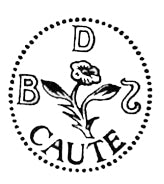
Underwear Underwearing: Extra Credit Edition
Natura Naturans = "nature naturing," which is the active participle and describes God/Nature as manifesting infinite energy/power.
Baruch Spinoza was a 17th century philosopher who to this day is still regarded as one of the most prominent thinkers of our time, and someone whose work and perspective I have always been curious about. In particular, Spinoza believed that action and movement are more important than the velocity of the mind, and I think it was this aspect of his philosophy that drew me to read more closely into his work. He understood the world from a perspective of physics, as a place that’s always in motion—long before physics was really an established study. Practicing action is the key to his ethics, and not so much our choice, or intent. I found this message simultaneously empowering and comforting--we can't completely direct the courses of fate and the universe, but we can control how much we put ourselves out there and act in it.
Among philosophers, Spinoza is best known for his Ethics, a monumental book that presents an ethical vision of the world in which God and Nature are identified. God is no longer the transcendent creator of the universe who rules it via providence, but rather Nature itself, which is understood as an infinite, necessary, and fully deterministic system of which humans are a part. Humans find happiness only through a rational understanding of this system and their place within it, not dominance over it. At the time I was studying Spinoza I was very involved with learning about and experimenting with natural dyes and organic fibers, and his simple (yet radical at the time) notion of nature, humanity, the cosmos, etc., all being one and the same felt very linked to the work I was doing.
Despite the incredibly dry manner in which his Ethics were written, I found much visual inspiration through them. Spinoza approached this book in a very mathematical way with a series of numerical statements he calls propositions. Though you may interpret much from the meaning and intent of Spinoza in his propositional statements alone, he also wrote detailed explanations (called “Scholia”) after each one in order to further their understanding.
Here below, I also offer a sort of "scholia" to accompany my visual interpretations inspired by Spinoza’s writings:

“No one knows what the body can do.”
-Spinoza rejects the notion of dualism: the idea of the immortality of the soul, and that our minds control our bodies and are thus responsible for controlling our passions. From this notion of psychological dualism a moral dualism was developed (by Spinoza’s predecessors) that the mind must govern the body. Spinoza rejects this, he believes mind and body are one and always acting together, and does not have a moralistic condemnation of human emotion.

-For Spinoza, you can’t simply will pleasure or pain, thus they are fundamentally passive. However the more active we are, the happier we will be, because activity brings us closer to perfection/pleasure. The human capacity for desire is expressed in activities that result in this transition towards perfection, which is experienced as joy. Perfection=completion, whatever that means to our individual essence. We are powerful (happy) when we are active/striving towards our own individual perfection/completion. He referred to this as Connatus: the striving of the body towards existence and perfection in its existence. To not only survive but thrive.

"Every substance is necessarily infinite."
-Spinoza’s philosophy is close to Pantheism (the idea that god is nature, or that god is in everything, and Monism (that there is only one single substance/material in the world). He believes we are different attributes of one and the same substance: God, humans, nature, animals, it’s all from the same stuff. Unity is the dominant and pervasive theme in his philosophy.

-CAUTE: Spinoza was considered “dangerous” by his contemporaries, because his writings were so radical at the time of their publication in the late 1600s. Caute (pronounced cow-tay) is the Latin word for "be cautious" or "careful" and would become his lifelong motto. He wore a signet ring with the inscription “caute” and the symbol of the rose, thorny and dangerous, yet also beautiful.
Bitter experience taught him that if one speaks too soon, too carelessly, in too ill-prepared and/or unguarded a way, there is always a real chance that someone will come down upon you very, very hard, and he was, in fact, excommunicated from his own Orthodox Jewish community in Amsterdam for his public writings denying the immortality of the soul and rejecting the notion of a providential God.
I find this notion of caution so relevant now more than ever in our information-saturated/social media dominated cultural landscape. Be careful what you believe and what you surround yourself with, but be cautious also in what you choose to give your voice to.

“Will cannot be called a free cause, but only a necessary cause” Part I, Prop 32
-“Men are deceived in thinking themselves free, a belief that consists only in this, that they are conscious of their actions and ignorant of the causes by which they are determined. Therefore the idea of their freedom is simply the ignorance of the cause of their actions.” –Part II, Prop 35, Scholium

Spinozan politics: the idea that the social interest and self interest are opposed is false. There is a lot to be said for self interest.
Spinoza believes in self interest, but also believes it’s the best for the whole social collective because the better I get to know my own self-preservation the better I get to know that of the social as well.
General human flourishing will require sociability (because humans are social animals) so other people flourishing in turn helps you. We are always heteronomous (dependent on other beings, not autonomous).
"Therefore nothing is more advantageous to man than man. Men, I repeat, can wish for nothing more excellent for preserving their own being than that they should all be in such harmony in all respects that their minds and bodies should compose, as it were, one mind and one body, and that all together should endeavor as best they can to preserve their own being, and that all together they should aim at the common advantage of all. From this it follows that men who are governed by reason, that is, men who aim at their own advantage under the guidance of reason, seek nthing for themselves that they would not not desire for the rest of mankind; and so are just, faithful, and honourable.” Part IV Prop 18 Scholium
-Anya Ferring

